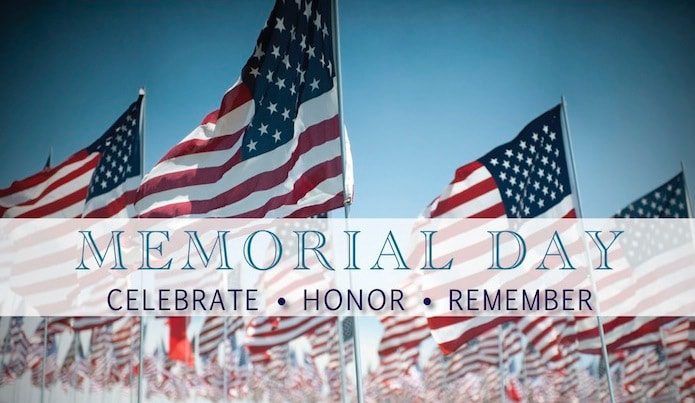
Memorial Day, perhaps more than any other holiday, was born of human need of consolation. Deep inside all of us lies a fundamental desire to make sense of life and our place in it and the world. What we have been given, what we will do with it and what we will pass to the next generation is all part of an unfolding history, a continuum that links us to another. Abraham Lincoln pondered these thoughts in the late fall of 1863. His darkest fear was that he might well be the last president of the United States, a nation embroiled in the self-destruction of what he described as “a great civil war…testing whether that nation, or any nation so conceived and so dedicated can long endure.” He began his remarks with those words as he stood on the battlefield near Gettysburg, Pennsylvania on November 19th of that year.
The minute’s speech that became known as Lincoln’s Gettysburg Address turned into what might be called the first observance of Memorial Day. Lincoln’s purpose that day was to dedicate a portion of the battlefield as a cemetery for the thousands of men, both living and dead, who consecrated that soil in the sacrifice of battle. Said Abraham Lincoln: “That from these honored dead we take increased devotion to that cause which they gave the last full measure of devotion…that this nation, under God, shall have a new birth of freedom…” Three years later, in 1868, General John A. Logan, first commander of the Grand Army of the Republic issued a General Order establishing May 30 as an official Memorial Day, to pay respect to all those who had died, in war or peace. His order was that the men in his command should spend a portion of that day polishing the gravesites, decorating them and supporting whatever ceremonies they could. He hoped that this would spark enough interest to make Memorial Day a permanent national observance.
 In the intervening decades, Memorial Day has been observed every year, though the day was re-established from May 30 to the last Monday in May. In 1966, President Lyndon Johnson also sanctioned Waterloo, New York as the “official” birthplace of Memorial Day because of the extensive ceremonies established there in 1866. Please join me in honoring our fallen service members’ bravery, selflessness and dedication and remembering the family, friends and loved ones they left behind. Memorial Day is a day to honor the men and women who gave their lives to protect our freedom. Over the three-day weekend, while you celebrate these early days of summer with friends and loved ones, take a moment to remember these service members and their families.
In the intervening decades, Memorial Day has been observed every year, though the day was re-established from May 30 to the last Monday in May. In 1966, President Lyndon Johnson also sanctioned Waterloo, New York as the “official” birthplace of Memorial Day because of the extensive ceremonies established there in 1866. Please join me in honoring our fallen service members’ bravery, selflessness and dedication and remembering the family, friends and loved ones they left behind. Memorial Day is a day to honor the men and women who gave their lives to protect our freedom. Over the three-day weekend, while you celebrate these early days of summer with friends and loved ones, take a moment to remember these service members and their families.
I close by sending Happy Mother’s Day greetings to all the mothers. What is a mom? Is she the one that gave birth to your life? Is she the one who raised you with the warm embrace of her arms? Is she the woman who gives all of her life, so that yours could be prosperous and long? Many mothers are probably these things and more. Moms are often masters of motivation and makers of memories. They are often the madams of the manor, the makers of meals, and more often than not, the maid of the mansion. She carries the motif of morality; she’s the mayor of mandates, and the magistrate over mayhem. She leads as a mentor of minors for the young who abide near her feet. For many, moms are ministers of mercy, comforting their young with a spiritual milk of magnesia, for a mom’s soothing nature takes away pain and makes everything better. Still, on this day, what is a mom if not all that? For a woman with qualities like this, I think we’d all tip our hats and say, “WOW, what a MOM!”
Happy Mother’s Day to all mothers, and thank you to those veterans who sacrificed and those who are sacrificing for the peace of this great nation!
God bless America and god bless the City of West Park!





